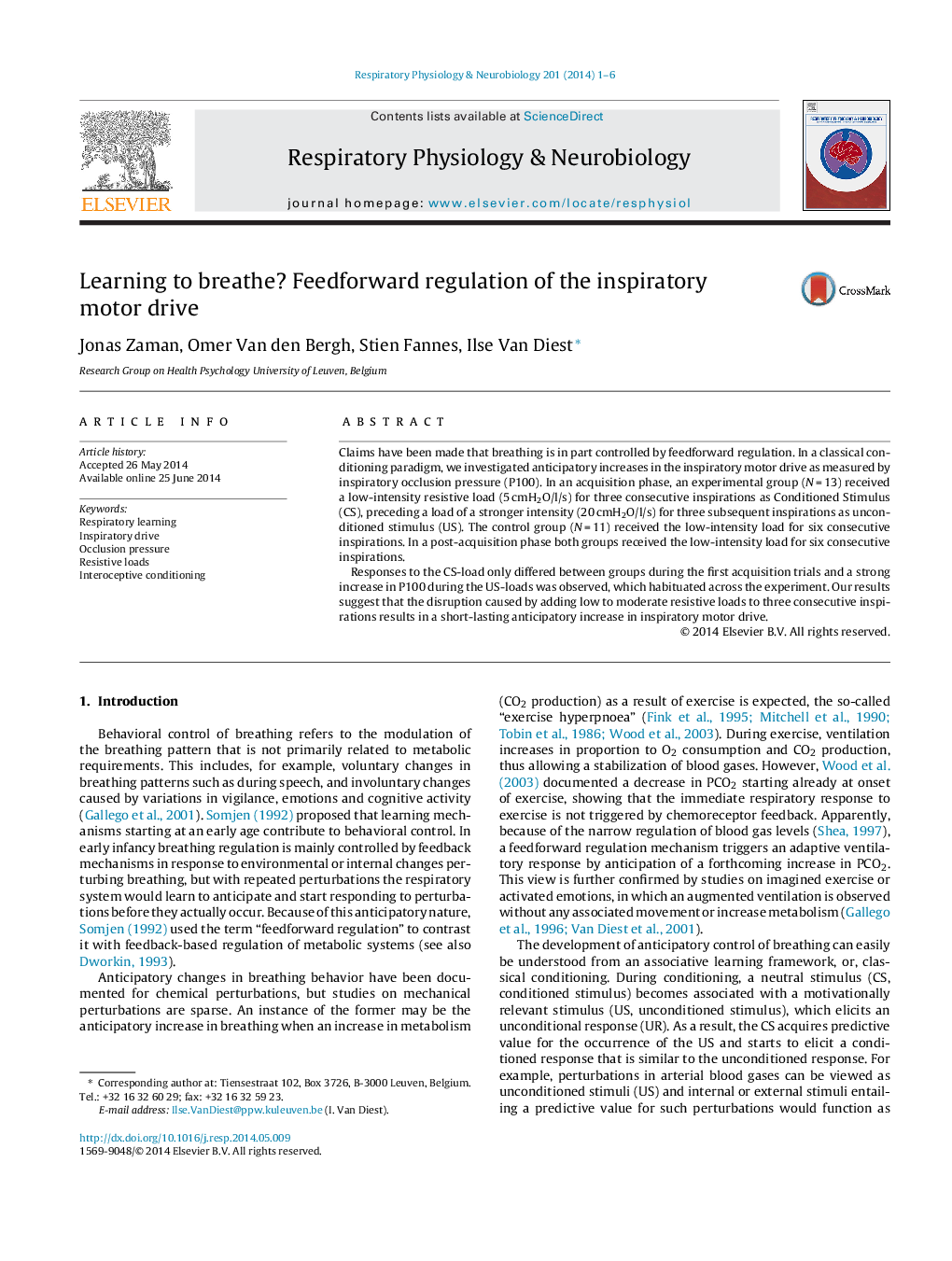| کد مقاله | کد نشریه | سال انتشار | مقاله انگلیسی | نسخه تمام متن |
|---|---|---|---|---|
| 2846972 | 1571327 | 2014 | 6 صفحه PDF | دانلود رایگان |
• We investigated anticipatory increases in the inspiratory motor drive (P100).
• An interoceptive conditioning paradigm with resistive loads was used.
• A low-intensity load predicted a load of a higher intensity load.
• A short-lasting anticipatory increase in P100 was observed to the low intensity load.
Claims have been made that breathing is in part controlled by feedforward regulation. In a classical conditioning paradigm, we investigated anticipatory increases in the inspiratory motor drive as measured by inspiratory occlusion pressure (P100). In an acquisition phase, an experimental group (N = 13) received a low-intensity resistive load (5 cmH2O/l/s) for three consecutive inspirations as Conditioned Stimulus (CS), preceding a load of a stronger intensity (20 cmH2O/l/s) for three subsequent inspirations as unconditioned stimulus (US). The control group (N = 11) received the low-intensity load for six consecutive inspirations. In a post-acquisition phase both groups received the low-intensity load for six consecutive inspirations.Responses to the CS-load only differed between groups during the first acquisition trials and a strong increase in P100 during the US-loads was observed, which habituated across the experiment. Our results suggest that the disruption caused by adding low to moderate resistive loads to three consecutive inspirations results in a short-lasting anticipatory increase in inspiratory motor drive.
Journal: Respiratory Physiology & Neurobiology - Volume 201, 15 September 2014, Pages 1–6
